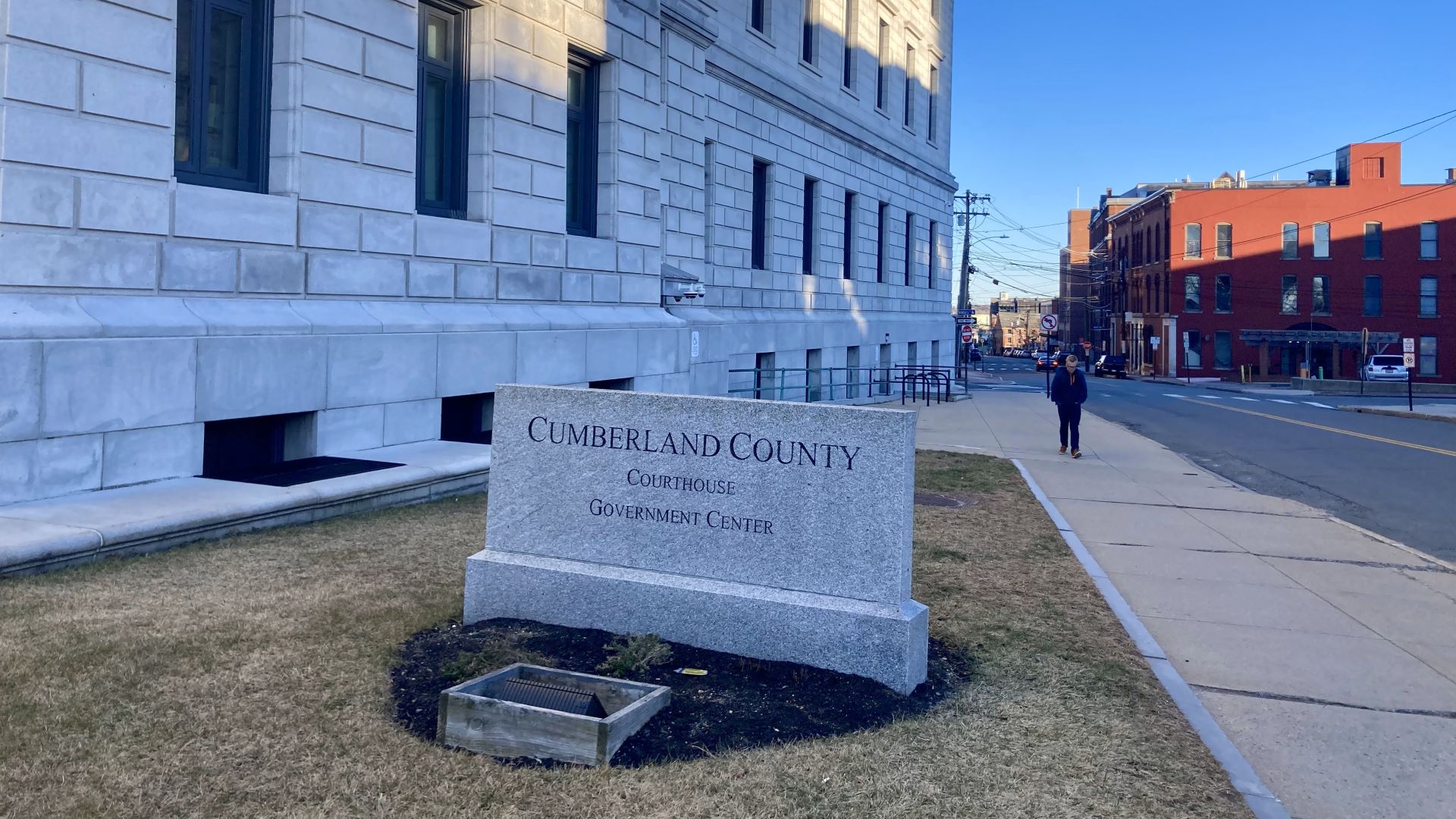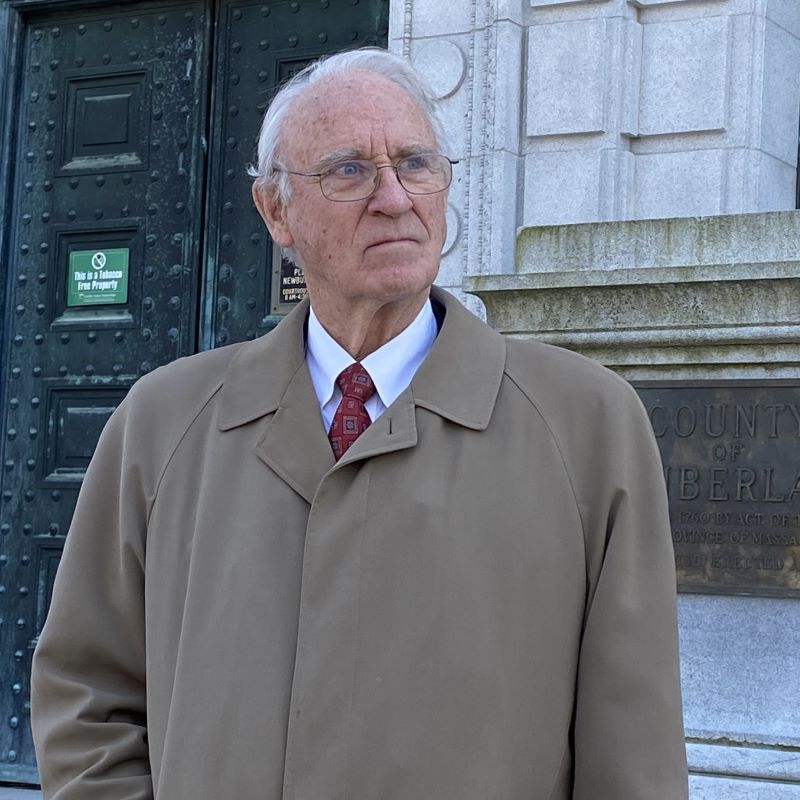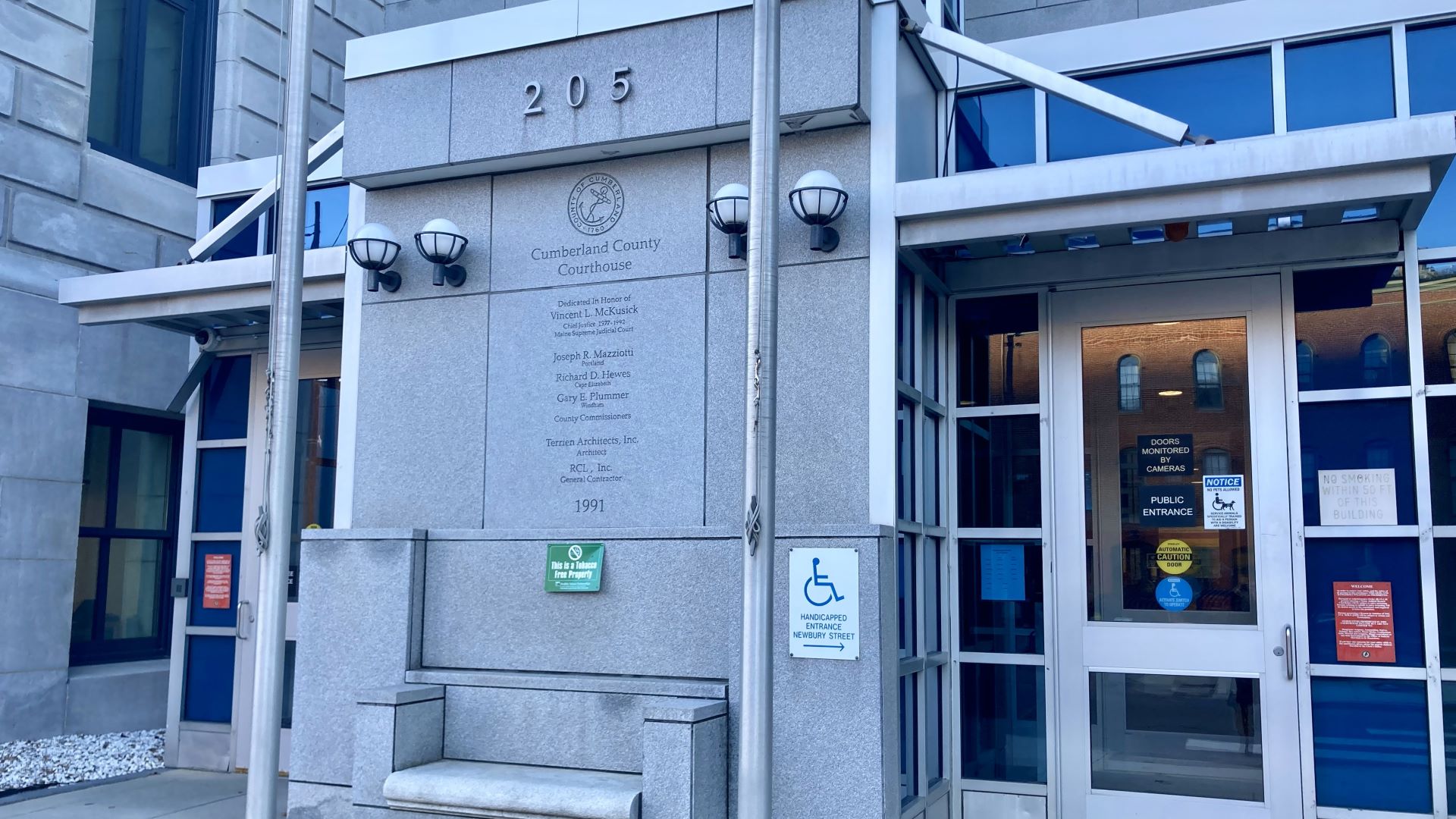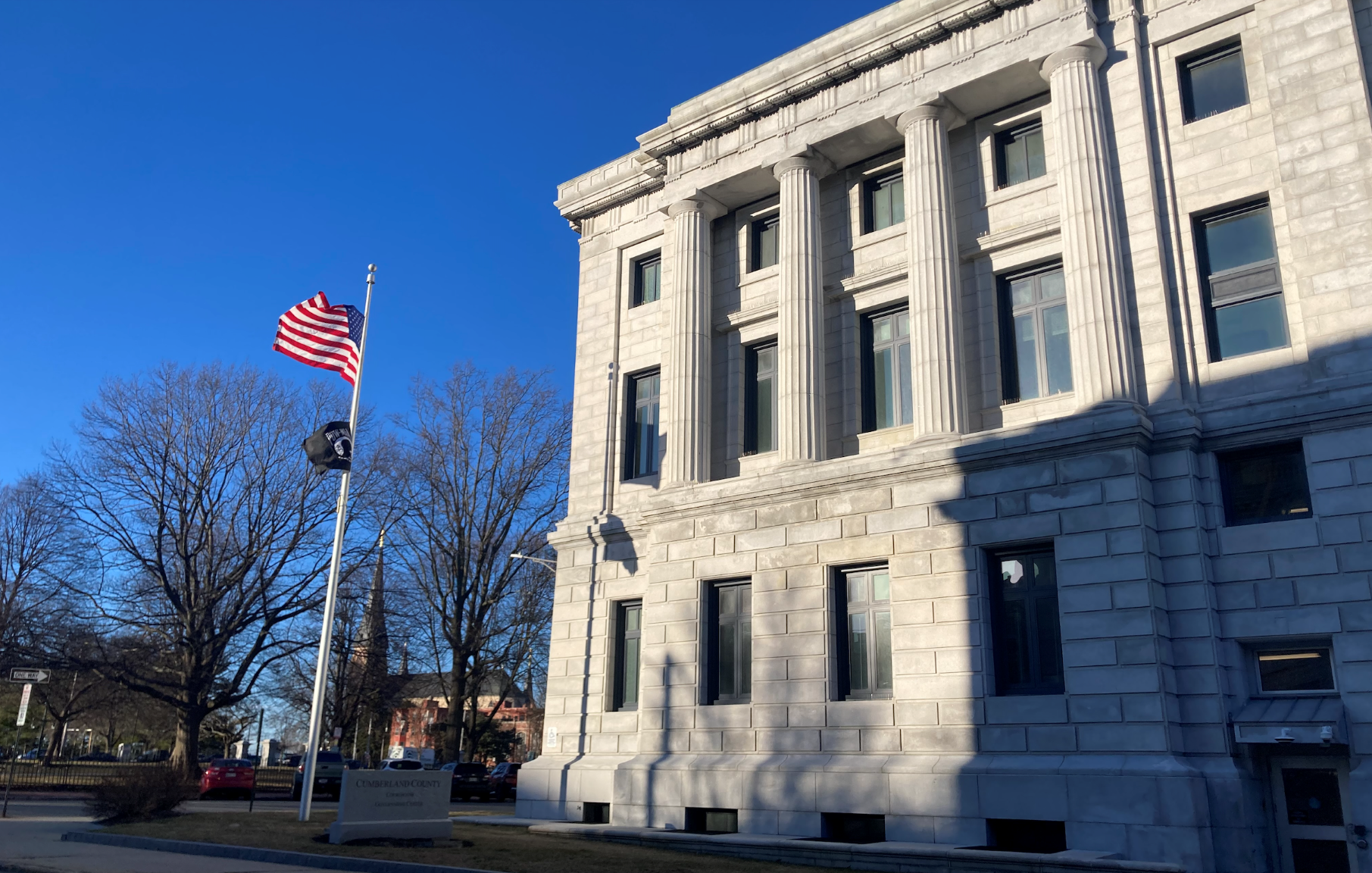There are many legal concepts that require some time in law school or Latin classes to understand. The “reasonable person” standard, however, sounds simple.
According to Maine’s Code of Judicial Conduct, it is up to a judge to decide whether to recuse from a case based on whether “a judge’s impartiality might reasonably be questioned.”
The question, said Maine Law Professor Dmitry Bam, is “what would a reasonable person think?”
A recent ethics inquiry suggests this isn’t as simple as it sounds. Maine Supreme Judicial Court Justice Catherine Connors is facing disciplinary proceedings, a first for a sitting Maine high court justice, because she did not recuse herself from two foreclosure appeals before the court.
While Connors could be the first Maine justice to be disciplined, two different committees of legal experts disagreed on whether her recusal was necessary.
The Advisory Committee on Judicial Ethics, which Connors consulted before the two cases were decided, told her she didn’t have to recuse herself.
But last month, the Committee on Judicial Conduct, which evaluates ethics complaints against judges and justices, finished an investigation and determined that Connors had violated the code of conduct. As a result, the committee recommended that Connors face disciplinary action.
One rule. Two different conclusions.
“You can have someone say ‘no reasonable person would be worried about this,’” Bam said. “And somebody else could say, ‘No, it’s clear that a reasonable person would be worried.’ I don’t know if there’s a way out of that conundrum.”
At issue is Connors’ decision not to recuse herself from two cases decided earlier this year.
Together, those decisions overturned precedent favoring homeowners in foreclosure proceedings.
One of the cases, Finch v. U.S. Bank, N.A., “dramatically reshaped foreclosure law in Maine,” according to a blog post written by a partner at Pierce Atwood, the firm that Connors worked at before joining the court in 2020.
According to Connors’ critics, the reshaped foreclosure law benefits the banking industry clients she represented while a partner at Pierce Atwood. She represented the bank in the 2017 Supreme Court case Pushard v. Bank of America. In that case, the court unanimously ruled against the bank in favor of the borrower, holding that banks could not bring repeated foreclosure actions against the same homeowners.
But in January of this year, Connors joined a 4-3 majority that overturned the precedent set in Pushard, a case she had lost as an attorney. She also joined the majority in a 5-2 decision in J.P. Morgan Mortgage Acquisition Corp. v. Moulton, another related foreclosure case. In that case, one of her former clients, the Maine Bankers Association, filed a “friend of the court” brief arguing that Pushard should be overturned.
After those decisions, veteran foreclosure attorney Thomas Cox filed a complaint against Connors with the Committee on Judicial Conduct, which ultimately agreed with Cox’s complaint. Complaints to the committee only become public if the committee makes a disciplinary recommendation to the Maine Supreme Court, which is responsible for disciplining Maine’s judges.
Connors should have recused herself from both cases, the committee determined, because of her prior participation in the Pushard case as an attorney representing the losing bank.
“A member of the public informed of the surrounding facts and circumstances of Justice Connors’ representation of banking interests would reasonably question her impartiality,” wrote John A. McArdle III, an attorney and executive secretary of the committee.
But Connors and the advisory committee that she consulted view the situation differently. In laying out their decision-making process in emails now in the public record, they point out that Pierce Atwood, Connors’ former firm, was not involved in either case.
The only involvement of a former client was in filing a “friend of the court” brief. And neither of the attorneys representing homeowners in either case sought her recusal. (Neither attorney responded to emailed questions from The Monitor.)
They also argue that just as the law requires a judge to recuse when there are conflicts, it requires a judge to hear a case when there are none.
In an email, Connors told the committee investigating the complaint that while she had represented banks, she had no personal opinion on foreclosure law. (Connors did not respond to an email seeking comment.)
Nevertheless, the Committee for Judicial Conduct determined that Connors had breached the ethics code and recommended that the Supreme Court take disciplinary action.
Connors’ failure to recuse not “only violated the Judicial Code of Conduct” but “undermines public confidence in the judiciary,” McArdle wrote.
Since the committee was formed in 1978, it has only made 17 disciplinary recommendations to the Supreme Court, despite receiving dozens of complaints a year. (The high court rendered discipline in 15 of those cases.) Since 1995, it has only recommended discipline for probate judges, which unlike the rest of Maine’s judiciary are part-time and elected by voters, not appointed by the governor.
This is the first time the committee has recommended discipline against a judge on the Supreme Court.
Now, Maine’s highest court must decide how to judge one of its own members, with history and Maine law offering little guidance.
‘No set rules’
There are “no set rules” for how the court handles such judicial complaints, so the court will soon issue a “procedural order governing the proceedings,” Supreme Judicial Court clerk Matthew Pollack wrote in an email.
The position the high court is in raises questions about whether the justices can avoid conflicts or the appearance of conflicts when tasked with judging one of their own colleagues.
It’s “a recusal issue inside of a recusal issue,” said David Sachar, director of the Center for Judicial Ethics for the National Center for State Courts.

Across the country, states have come up with a variety of ways for high courts to preside over allegations against one of their own, Sachar said.
At least 15 states require that disciplinary cases against a Supreme Court justice be reviewed by judges who do not sit on the high court with the accused justice, according to a 2023 analysis by the Center for Judicial Ethics.
In Colorado, the entire Supreme Court recuses itself from any discipline proceeding involving a current or former justice and the court administrator appoints a “special tribunal” of seven randomly selected appeals court judges. In Massachusetts, the chief justice of the appeals court, along with the court’s six most senior justices, hear the case.
“There’s a lot of different methods,” Sachar said. “And Maine’s method of having no clear answer is not unusual.”
Questioning impartiality
When Gov. Janet Mills nominated Connors to the Supreme Court in 2020, she was a partner at Pierce Atwood, one of Maine’s largest law firms. Part of her work for the firm involved representing banks in foreclosure appeals before the court.
Public financial disclosures show that Connors retained a financial interest in the firm through at least the end of 2023, although not the amount of that interest. (Connors and Pierce Atwood did not respond to emails seeking clarification on the arrangement.)
Unlike foreclosure proceedings in lower courts, appeals to the Supreme Court typically involve not just picking winners, but answering thorny legal questions about the foreclosure process and the rights of borrowers and lenders. Those answers become precedents that then guide Maine law moving forward.
When the Finch case came before the court, Connors participated in oral arguments. She also participated in oral arguments in Moulton. At this point, the court asked for additional briefs on the two cases, including on whether the court should overturn the precedent it set in Pushard, the case Connors lost as an attorney for Bank of America.
It wasn’t until the Maine Bankers Association, a former client, filed a brief that Connors asked the advisory panel whether she should recuse herself. She requested an informal opinion of the advisory committee just after 2 p.m on Friday, September 30, 2022.
Committee chair Jim Martemucci, a district court judge, sent back a response at 8:19 a.m. the following Tuesday.
The committee had “carefully reviewed your inquiry” and “unanimously” decided that Connors did not need to recuse, Martemucci wrote. (Martemucci did not respond to an email seeking comment.)
“The fact that a lawyer advocated a position for a client does not disqualify the lawyer from considering the same legal issue as a judge,” Martemucci wrote. “If the law were otherwise, presumably former prosecutors or defense counsel could not hear criminal cases.”
In an interview with The Monitor, Cox, the foreclosure attorney who filed the complaint against Connors, said in his view the justice didn’t present the ethics committee with all the relevant information or clearly ask whether her role representing Bank of America in Pushard meant she should recuse in Finch.

In her inquiry, Connors laid out her role representing the bank in the Pushard case and explained that the court had asked for briefs on whether it should overturn that case, then asked for guidance on whether she should recuse.
But the question she focused on had to do with her filing a “friend of the court” brief for the Maine Bankers Association: “Does it make a difference that I did not represent a party in Deschaine, but rather an amicus, and that amicus is now filing an amicus brief in a separate appeal, represented by a different firm?”
“That’s the only complete sentence with a question mark after it,” Cox said.
Cox pointed out that Connors didn’t mention that Pierce Atwood is an affiliate member of the Maine Bankers Association. Nor did she mention that she still had a financial stake in Pierce Atwood.
The firm also has a lobbying practice. One of its clients in 2024 was the Maine Real Estate and Development Corporation, which counts among its members a variety of banks.
Connors remained on the case, ultimately helping to decide Finch in favor of the lender. She also joined the 5-2 majority in the related case, J.P. Morgan Mortgage Acquisition Corp. v. Moulton.
Questions about Connors’ ability to impartially hear mortgage foreclosure cases had come up during her 2020 confirmation hearing. Former independent Rep. Jeffrey Evangelos, who was one of the 11 members of the judiciary committee to unanimously send her nomination to the Maine Senate, revisited this testimony when the Moulton case was before the court.
On Monday, October 3, 2022, between Connors requesting an opinion from the advisory council and it providing the opinion that she need not recuse, Evangelos wrote Chief Justice Valerie Stanfill to request Connors recuse from Moulton, the case in which her former client filed an amicus brief.
“The Court has invited amicus briefs to weigh in on this case and the ‘interested parties’ include entities that Justice Connors represented,” Evangelos wrote. “In order to maintain the credibility of the justice system and the veracity of testimony delivered to the Judiciary Committee on January 30th, with repeated promises of recusal, I formally request that Justice Conners recuse on this pending case.”
She did not, and Evangelos later said that Connors had betrayed his trust.
To recuse or not to recuse
On May 28, after opening an investigation into Cox’s complaint, the Committee on Judicial Conduct sent Connors a letter asking two questions.
The first was why she sought out an opinion from the advisory committee after participating in the oral arguments in Finch, and not earlier.
In response, Connors wrote that Pierce Atwood, her former firm, did not represent a party in either case, nor had she represented any of the parties in the two cases, so she saw no need to recuse.
She also stated that “no one ever moved for my recusal in either case.”
It was only after the Maine Bankers Association filed a brief that she “questioned whether recusal was required,” she wrote.
McArdle and the judicial conduct committee found Connors’ explanation unconvincing. Its report said that Connors knew “well before” she asked the advisory committee for an opinion that “the decisions of the appeals would either overturn or leave intact the Pushard case in which she advocated on behalf of banking interests.”
The other question the committee asked Connors was why she did not “choose to err on the side of caution” and recuse from both the Finch and Moulton cases.

Connors explained that when she first became a justice, she “automatically” recused any time a member of her “long list” of previous clients was party to an appeal.
“Over time, I became more sensitive to the burden these recusals were imposing on my fellow justices,” she wrote. She also pointed to a legal principle that requires judges to hear cases, citing a 2000 Maine ruling: “A judge is as much obliged not to recuse himself when it is not called for as he is obliged to when it is.”
After two years on the bench, she decided she “should not recuse except when the Code really required disqualification.”
She went on to write that her interpretation of the Code of Judicial Conduct and case law led her to believe that “whether an appeal involves an issue as to which I previously represented clients in court is not a factor in the consideration to recuse,” she said, noting that while prior representation of a particular client may be grounds for questioning, previous work on a particular issue should be seen differently.
“Recusal should occur only if the judge has a personal view on the subject matter, outside of her previous advocacy, which she cannot dislodge to act as a neutral decision-maker,” she wrote. “I have and had no such personal views in the area of foreclosure law.”
The judicial conduct committee was not satisfied with that answer.
“It does not matter whether Justice Connors subjectively thought she could be fair or impartial,” McArdle wrote. “How could her impartiality not be reasonably questioned given that the Law Court in Finch was to decide if the Pushard case, which Attorney Connors had previously lost on appeal, should be reversed?”
The committee also criticized the guidance she eventually received from the ethics committee.
“Nowhere in the decision of the Ethics Committee is the term or concept of the appearance of a conflict addressed,” McArdle wrote.
Rates of recusal
According to data from the Maine Supreme Judicial Court, recusal is not especially rare.
Justices recused 55 times so far in 2024 and 95 times in 2023. The rate varies from year to year, but the high watermark over the last 10 years was 2016, when there were 166 recusals. Per Maine law, judges don’t have to explain their decision to recuse from a case.
Former Chief Justice Leigh Saufley recused from all foreclosure-related cases while her husband worked for a mortgage provider, she said.
“If you have a family member who is going to be harmed or benefited by whatever the court is doing, judges recuse in those sort of automatically,” she said.
Now the Dean of the University of Maine Law School, Saufley declined to comment on the Connors proceedings.
So far this year Connors has recused herself from 19 cases, according to a Maine Monitor analysis of data from the court. In 2020, her first year sitting as a judge, she recused herself from 34 cases. In the intervening years, there was a big dip: she recused 11 times in 2021, 3 times in 2022 and 9 times in 2023.
Justice Andrew Horton, who like Connors was appointed in 2020, also recused himself fairly frequently in his first year: 27 times. Since then, he has done so far less often, under 10 times each year.
Chief Justice Valerie Stanfill, who became chief justice in June 2021, recused herself 14 times in the latter half of that year, 20 times in 2022, 25 times in 2023, and 6 times so far this year.
When justices recuse from cases, they can be replaced by active retired justices. There are currently only six justices on the bench, along with two active retired justices, Jeffrey Hjelm and Thomas Humphrey. In Finch, Stanfill recused; Hjelm and Humphrey joined Justice Andrew Mead in the dissent.
Who makes the call
The conflicting determinations of the ethics advisory panel and the judicial conduct committee highlight the problem with the self-recusal process, said Maine Law professor Dmitry Bam.
“My preference would be somebody else make the call and have that call be final so the judge doesn’t make the decision and doesn’t kind of run the risk of getting it wrong,” Bam said.
A 2016 report from the Brennan Center for Justice found that in most states it is up to judges to decide if they should recuse themselves, with no requirement to give a reason, and no independent review of outside requests for recusal.
“The procedural rules governing judicial disqualification in many state court systems fail to provide for meaningful independent consideration of recusal decisions by judges,” the authors wrote. “While it is widely recognized that ‘no man should be a judge in his own case,’ this standard often is not applied to judicial disqualification.”
To veteran Maine attorney Robert Cummins, who helped create the American Bar Association Model Code of Judicial Conduct, Connors’ choice “was not a close call.”
“She should have recused herself,” he said.
It remains to be seen how the discipline recommendation against Connors will be handled. In past cases, the court’s discipline has ranged from censure and public reprimand to suspension and fines.
Many of the prior instances of discipline against judges were for patently objectionable behavior. The court has reprimanded, fined and suspended judges for illegally incarcerating defendants, taking part in plea negotiations, lying in ads against political opponents, writing letters to newspapers about cases and displaying “a pattern of impatient, undignified and discourteous treatment” of people in the courtroom.
These violations may differ from the ethical breach alleged against Connors. But a justice’s misconduct can have more far-reaching consequences than that of lower court judges; justices decide not only the cases before them but how all other Maine courts interpret the law.
Connors “knew the outcome of the appeals would not only affect the immediate parties to them but likely hundreds, if not, thousands of Maine homeowners facing foreclosure in the future,” McArdle wrote in his report.
Cox, the foreclosure attorney, says he is “relieved” that the Committee on Judicial Conduct found his complaint had merit.
“It’s not easy for a lawyer to file a complaint like this, and it’s not a comfortable position for me as a lawyer to be a complainant on this kind of matter,” Cox said.
But vindication from the committee doesn’t make a difference to the homeowners Cox represents against lenders.
“Unfortunately, the Maine Supreme Court, in its decisions, has now allowed homeowners to be subjected to multiple lawsuits,” Cox said. “And I think that’s truly unfortunate.”
“The damage is done,” he said.







